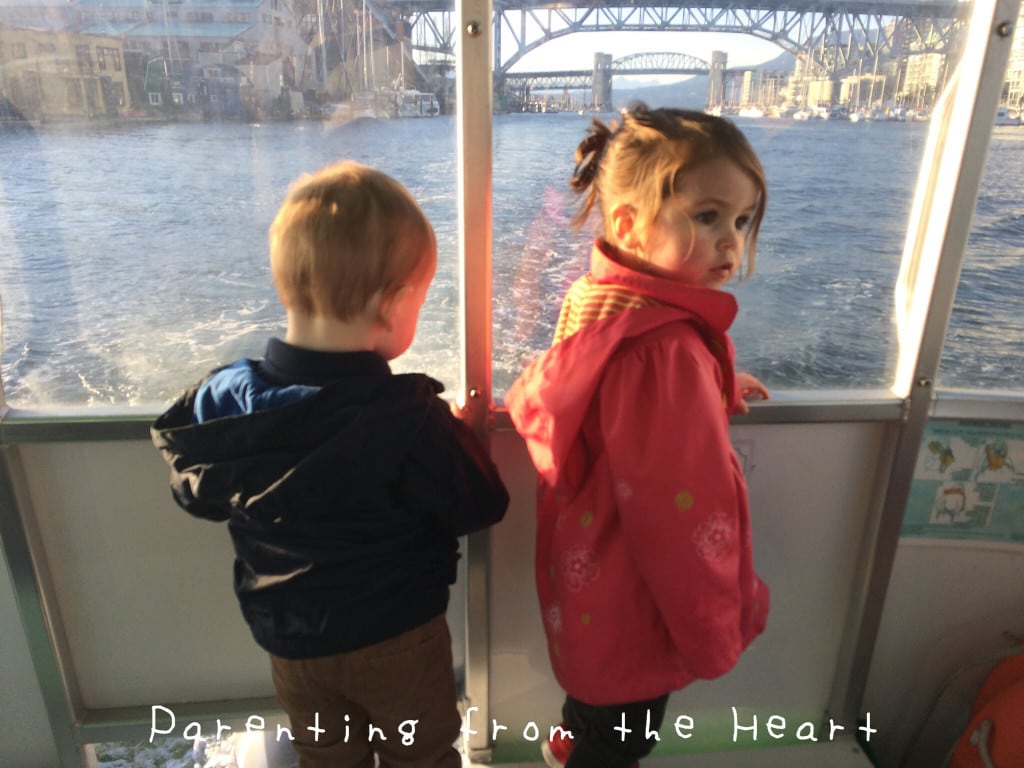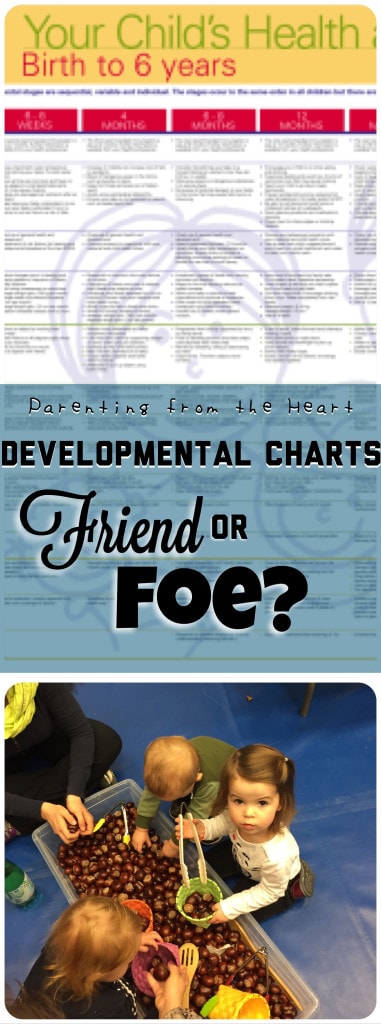Recently, my husband, kids, and I attended a preschool health fair. Held at our local community centre, the place…

Recently, my husband, kids, and I attended a preschool health fair. Held at our local community centre, the place was bustling full of resources and interactive displays. Grandparents, parents, and children were moving about getting free hand-outs, playing in sensory bins, having their faces painted, and making crafts. As we made our way around to most of the kiosks in a very helter-skelter sort of a way, I slowly picked up our share of resources and books. Once my kids settled into a sensory bin filled with chestnuts, I noticed the infant development booth about a meter away. Very intently, I went up in the hopes of getting some tips on how to encourage my son’s speech development. What I got handed was a series of charts to refer to. Being a mom of two, and having been a parent for almost three years, this certainly isn’t my first time reading and referring to these checklists. Though I understand they are meant to be helpful resources, I do have a general dislike for them and here is why.
In the case of my first born, I definitely consulted such charts much more often than with my second. It seems most first-time parents are worried about doing everything as well as possible, and, therefore read over expert tips, advice, and checklists more than with subsequent children. When I watched my first-born’s development unfold organically, I felt immense pride in how unrelentingly she worked at trying to crawl; how her language started off with rudimentary approximations, and then suddenly picked incredible momentum to the point she is now speaking in fairly elaborate sentences. As I am witness to her development outside of any framework, I see her strengths as being limitless. However, when I hold a developmental chart and look at her, in that moment I think of her as being “above average”. Instead of thinking of her as her, I am thinking of my daughter as compared to others.

As I held the charts given to me at the fair, and looked at them in the context of my son, I found many of his gifts and aptitudes were barely, or not touched on at all. Although, it was written quite clearly that my son should be speaking more than he is. At just over fifteen months, he has few words, but understands more than I would expect a little one his age would. I approached the infant development booth, knowing his spoken language might need encouragement, but was and am so proud of the extent of his receptive language in both English and French. In this case, I felt all I got from this hand-out was that in one dimension, he wasn’t meeting expectations. Adding a bit of insult to injury, the woman who had handed me the sheets seemed to listen only to what I was saying my son wasn’t doing as opposed to what he could do, and do well for that matter. Additionally, she stated my son needed to be assessed. After I made my way back to the sensory bin, she and her colleague were obviously looking at my son and discussing his output. I came away from what should have been a wonderful experience at the fair feeling hurt, and amiss. I cried the whole way to my night class that night. I felt like so much had been discounted that day. And, it’s not like they discounted me. They discounted my baby. Firstly, most parents have a good understanding of their children’s strengths and areas that may need some help. For instance, my daughter is incredibly empathetic, but could afford to work on patience and always saying, ‘please’. Most families are out in their community at parks, community centres, and at playdates or dinner with relatives and friends with kids enough to notice what most kids of a given age are able to do. For instance, patience is something that most two-year-olds could afford some work on 🙂 If a concern or question arrives, I can simply ask my family doctor, or a talk to the early childhood educator from the StrongStart we attend regularly. Furthermore, charts lack empathy and are fairly superficial. And because of that, I think it especially makes sense to talk to a trusted, trained professional. I made the mistake of talking to a professional who I didn’t know; in a context that was set up for brief interactions. By speaking to my doctor, or an early childhood professional that I have an ongoing relationship with, my explanation of my son’s development likely would have been met with warmth and reflective listening, followed by recommendation.
My children are the source of the purest, most immediate and profound love I have ever known; their every accomplishment is a source of immense pride in my life; their individual expression of who they are has me constantly thinking of possibilities, and I am already grateful of how they teach me through who they are and what they gravitate towards. The idea of imposing a very limiting framework on either of my toddlers to evaluate their competencies is something that does not work for me 🙂 If you would like to look at a framework I do love, check out Gardner’s Theory of Intelligences here. Is there a parenting staple you’ve done well without? Or, do you have an example of how your child is a standout in ways that might not be measured on a chart? Please share! I would love to hear your thoughts <3
Giftedness isn’t just about acing spelling tests or finishing math worksheets early. Psychologists define it as an out‑of‑the‑ordinary…
Back-to-school shopping is an annual adventure in our house. From choosing that first superhero backpack for kindergarten to…
At the current time, technology dominates and, therefore, it is becoming increasingly important to inculcate a love for…